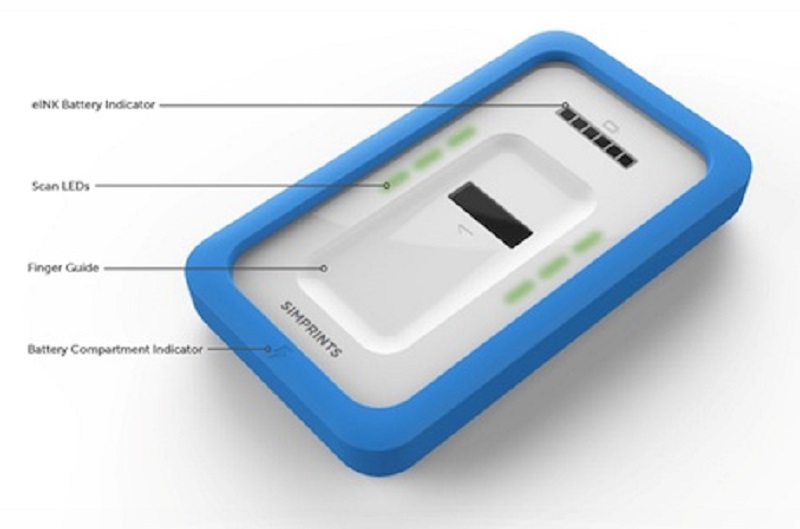
Gates Cambridge Scholars are crowdsourcing for a device which will enable community healthworkers in developing countries to access patient records through the touch of a finger.
Three Gates Cambridge Scholars are crowdsourcing for a device which will enable community healthworkers in developing countries to access patient records through the touch of a finger.
SimPrints is a rugged, low-cost biometric scanner that can sync wirelessly with mobile phones. The technology overcomes many of the challenges of accurate patient identification in developing countries. In these contexts patient records frequently don’t exist, and when they do exist they are usually paper-based and highly susceptible to loss or damage. Worse, linking health records across multiple points of care or for migrant and refugee populations is often virtually impossible.
However, SimPrints identifies patients through their fingerprints, matching them wirelessly to their records via Bluetooth to a health worker’s mobile phone. The records can be stored locally on the phone itself, or in cloud databases increasingly being used by medical nonprofits and governments all around the world
The technology is also affordable with each device, being priced at around £30.
The students, who include Gates Cambridge Scholars Toby Norman [2011], DanielStoristeanu [2012] and Elizabeth Dzeng [2007], have a target of £15,000 to raise to enable them to hire engineers in Kenya to finish developing the device. They have already raised £8,000 through crowdsourcing organisation Indiegogo and the campaign has a week to go.
Already potential clients, including the UNHCR, have expressed an interest in using the technology and Medic Mobile, the social enterprise set up by Gates Cambridge Scholar Isaac Holeman, is willing to test the device in the field.
The idea for SimPrints came through a global health competition last year where teams had to address different health challenges. SimPrints won the competition and Toby Norman formed a development team which has been seeking funding through various grant initiatives, including a Downing Enterprise Grant which was secured earlier this year.
Toby Norman says: “What’s exciting about this technology is the incredible range of potential applications in healthcare and beyond once you can take biometrics mobile. We could use SimPrints to monitor if HIV patients are getting access to their drugs everyday, reduce fraud in aid distribution, or improve the security of mobile banking for poor consumers – just to get started.”
Isaac Holeman [2013], co-founder of Medic Mobile, says: “What’s really new and distinctive about the SimPrints team is that they’re designing a high quality device specifically to be used on the front lines of global health”.
Another support of SimPrints is Anne Radl, Programme Manager of The Humanitarian Centre in Cambridge. She said: “We are big fans of SimPrints. We met them during our first Innovation and Development Hackathon which focused on Global Health… we think it’s going to amazing places, we’re really pleased to support it.”
Picture credit: twobee and www.freedigitalphotos.net












